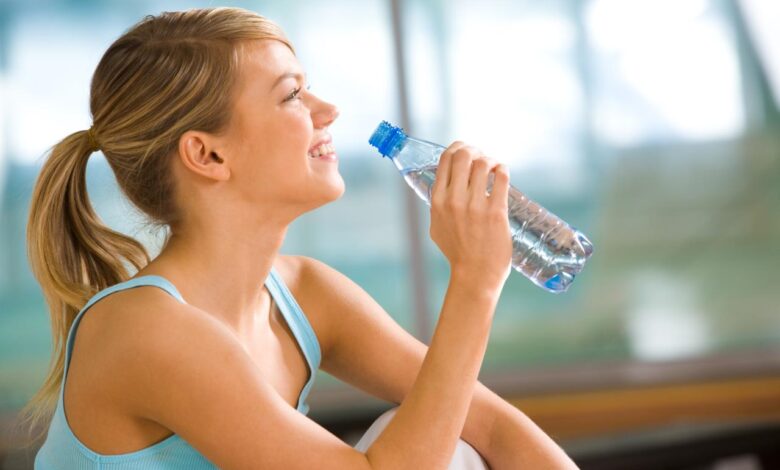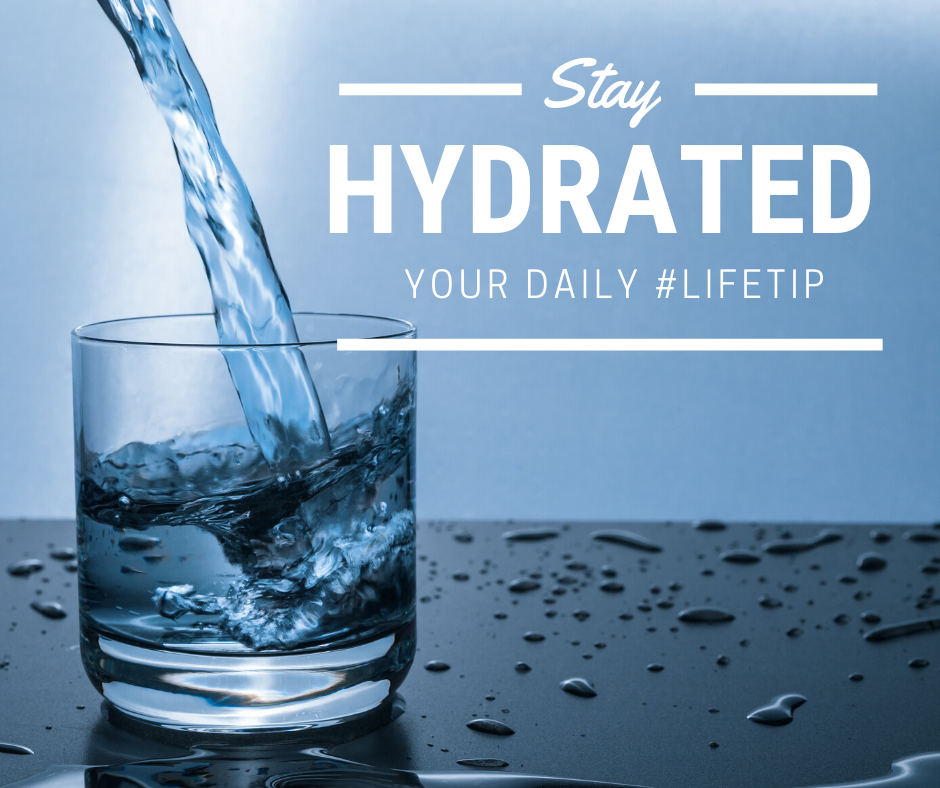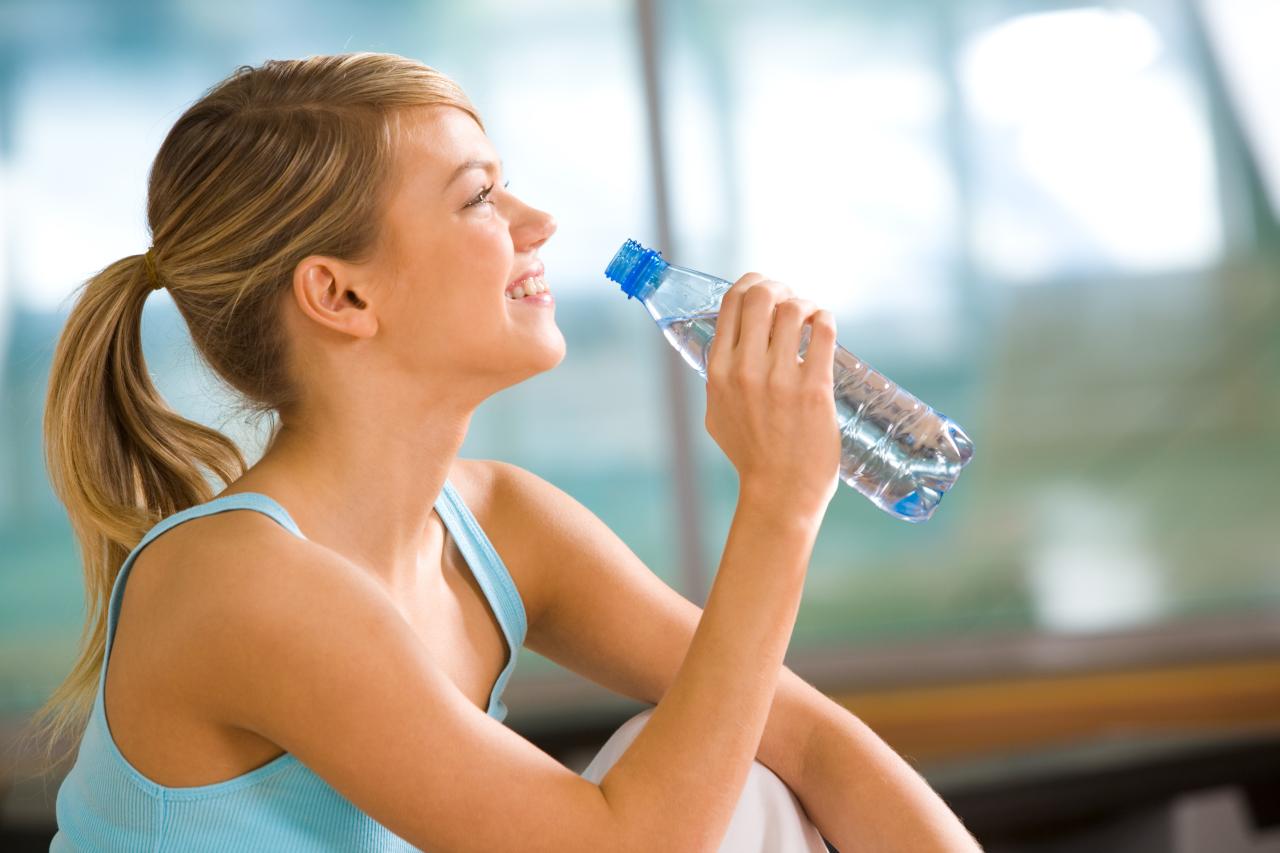
Eat & Supplement Electrolytes for Summer Heat
Eat and supplement your electrolytes for the summer heat: Summer is a time for fun in the sun, but it’s also a time when our bodies are more susceptible to dehydration. Excessive sweating depletes electrolytes, which are essential minerals that play a vital role in maintaining our bodily functions, like nerve impulses, muscle contractions, and fluid balance.
If we don’t replenish these electrolytes, we can experience a range of symptoms, from mild fatigue to severe cramping, and even heat stroke.
In this blog post, we’ll explore the importance of electrolytes during the summer months, delve into the signs of dehydration, and provide tips for replenishing electrolytes through diet and supplementation. We’ll also discuss how to prevent electrolyte imbalances and maintain optimal hydration throughout the summer.
The Importance of Electrolytes in Summer
Summer heat can take a toll on our bodies, and one of the most crucial things to keep in mind is maintaining proper electrolyte balance. Electrolytes are minerals that carry an electric charge when dissolved in fluids like blood. They play a vital role in numerous bodily functions, including nerve and muscle function, hydration, and maintaining blood pressure.
Electrolyte Depletion Due to Excessive Sweating
When we sweat, we lose not only water but also electrolytes, particularly sodium, potassium, chloride, and magnesium. Excessive sweating during hot weather can lead to electrolyte depletion, causing various health issues. This depletion can happen through strenuous activities, prolonged exposure to high temperatures, and even mild dehydration.
Common Electrolyte Deficiencies and Their Symptoms
Electrolyte deficiencies can manifest in various ways, depending on the specific mineral lacking. Here are some common electrolyte deficiencies and their associated symptoms:
Sodium Deficiency (Hyponatremia)
Sodium is the most abundant electrolyte in our bodies, primarily responsible for regulating fluid balance and maintaining blood pressure. Hyponatremia occurs when sodium levels in the blood drop below normal.
- Headache
- Nausea and vomiting
- Confusion
- Muscle weakness
- Seizures
Potassium Deficiency (Hypokalemia)
Potassium is crucial for muscle function, nerve impulses, and heart rhythm. Hypokalemia occurs when potassium levels in the blood fall below normal.
- Muscle weakness and fatigue
- Muscle cramps
- Irregular heartbeat
- Constipation
Magnesium Deficiency (Hypomagnesemia)
Magnesium is involved in over 300 bodily processes, including muscle and nerve function, blood sugar control, and blood pressure regulation. Hypomagnesemia occurs when magnesium levels in the blood fall below normal.
- Muscle cramps and weakness
- Fatigue
- Headaches
- Nausea and vomiting
- Irregular heartbeat
Calcium Deficiency (Hypocalcemia)
Calcium is essential for strong bones and teeth, muscle function, and nerve transmission. Hypocalcemia occurs when calcium levels in the blood fall below normal.
- Muscle cramps and spasms
- Numbness and tingling in the hands and feet
- Fatigue
- Brittle bones
Signs of Dehydration: Eat And Supplement Your Electrolytes For The Summer Heat
Dehydration is a condition that occurs when your body loses more fluids than it takes in. This can happen due to various factors, including excessive sweating, diarrhea, vomiting, and inadequate fluid intake. Recognizing the signs of dehydration is crucial, as it can help you take timely measures to prevent its progression and potential complications.
Summer heat can really take a toll on your body, especially if you’re not staying hydrated. It’s important to drink plenty of water and electrolytes, especially if you’re active or spending time outdoors. It’s a reminder that even with the heat, nature can throw some curveballs, as seen in the recent California storm that left a dozen dead and over 100,000 without power.
The storm highlights how quickly things can change, making it even more important to be prepared for anything, including staying hydrated and having emergency supplies on hand. So, stay cool, stay hydrated, and stay safe!
Levels of Dehydration
Dehydration can be categorized into three levels based on its severity: mild, moderate, and severe. Each level is characterized by specific symptoms that can help you identify the extent of dehydration.
- Mild dehydration:This is the least severe form of dehydration, often characterized by thirst, dry mouth, and slightly decreased urine output. You may also experience mild fatigue and headache.
- Moderate dehydration:This level of dehydration involves more pronounced symptoms, including increased thirst, dry mouth, decreased urine output, sunken eyes, and dizziness. You may also feel weak and experience muscle cramps.
- Severe dehydration:This is the most serious level of dehydration and requires immediate medical attention. Symptoms include extreme thirst, dry mouth, very low urine output, rapid heartbeat, rapid breathing, confusion, and lethargy. In extreme cases, seizures and coma may occur.
Common Dehydration Symptoms
Here is a table that summarizes common dehydration symptoms and their severity levels:
| Symptom | Mild | Moderate | Severe |
|---|---|---|---|
| Thirst | Present | Increased | Extreme |
| Dry Mouth | Present | Present | Present |
| Urine Output | Slightly decreased | Decreased | Very low |
| Sunken Eyes | Absent | Present | Present |
| Dizziness | Absent | Present | Present |
| Fatigue | Mild | Moderate | Severe |
| Muscle Cramps | Absent | Present | Present |
| Rapid Heartbeat | Absent | Absent | Present |
| Rapid Breathing | Absent | Absent | Present |
| Confusion | Absent | Absent | Present |
| Lethargy | Absent | Absent | Present |
| Seizures | Absent | Absent | Possible |
| Coma | Absent | Absent | Possible |
Foods Rich in Electrolytes
Summer heat can deplete your body’s electrolytes, essential minerals that help regulate fluid balance, nerve function, and muscle contractions. It’s crucial to replenish these lost electrolytes through your diet. Here’s a guide to incorporating electrolyte-rich foods into your summer meals.
Foods Rich in Electrolytes
| Electrolyte | Food Sources |
|---|---|
| Sodium |
|
| Potassium |
|
| Magnesium |
|
| Calcium |
|
Incorporating Electrolyte-Rich Foods into Summer Diet
Electrolyte-rich foods can be easily incorporated into your summer diet. Here are some tips:
- Add a handful of almonds or a few slices of avocado to your salads.
- Snack on bananas or a handful of dried apricots.
- Enjoy a refreshing smoothie made with coconut water, spinach, and banana.
- Add a sprinkle of sea salt to your meals.
- Choose electrolyte-rich beverages like coconut water or sports drinks.
Electrolyte-Rich Drinks, Eat and supplement your electrolytes for the summer heat
Electrolyte-rich drinks can help replenish lost minerals during summer activities.
- Coconut Water:A natural source of electrolytes, particularly potassium, and is a refreshing alternative to sugary sports drinks.
- Sports Drinks:Designed for athletes, they contain electrolytes, carbohydrates, and fluids to support performance and rehydration.
- Pedialyte:While primarily for children, it can also be a good source of electrolytes for adults experiencing dehydration.
Electrolyte Supplements
Electrolyte supplements are designed to help replenish essential minerals lost through sweat, particularly during intense physical activity or hot weather. They are a convenient and effective way to maintain electrolyte balance, prevent dehydration, and support overall hydration.
Types of Electrolyte Supplements
Electrolyte supplements are available in various forms, each with its own advantages and disadvantages.
- Powder:Electrolyte powders are typically mixed with water to create a refreshing drink. They are often highly concentrated and offer a wide range of electrolytes, making them a versatile option. Powdered supplements are generally more affordable than other forms and can be easily customized to individual needs.
For example, you can adjust the amount of powder used to control the electrolyte concentration.
- Tablets:Electrolyte tablets are convenient and portable, making them ideal for travel or on-the-go hydration. They are typically designed to dissolve quickly in water, offering a rapid way to replenish electrolytes. However, tablets may not provide as wide a range of electrolytes as powders and may not be as customizable.
- Drinks:Pre-mixed electrolyte drinks are readily available in various flavors and are convenient for quick hydration. They offer a balanced mix of electrolytes and are often fortified with vitamins and minerals. However, pre-mixed drinks can be more expensive than other options and may contain added sugar or artificial sweeteners.
Choosing the Right Electrolyte Supplement
Selecting the right electrolyte supplement depends on individual needs and preferences. Consider the following factors:
- Activity Level:Individuals engaging in intense physical activity or prolonged exercise may require higher electrolyte concentrations than those with moderate activity levels.
- Sweat Rate:People who sweat profusely during exercise or in hot weather may need to replenish electrolytes more frequently. Consulting a healthcare professional can help determine your individual sweat rate.
- Electrolyte Content:Different electrolyte supplements contain varying levels of sodium, potassium, magnesium, and calcium. Choose a supplement that provides a balanced mix of electrolytes, particularly sodium, which is crucial for fluid retention.
- Taste and Flavor:Electrolyte supplements come in various flavors. Select a flavor that you enjoy to encourage regular consumption.
- Ingredients:Some electrolyte supplements may contain added sugar, artificial sweeteners, or other additives. Consider your dietary preferences and any allergies when choosing a supplement.
Staying Hydrated in the Summer Heat
Staying hydrated during the summer months is crucial for maintaining your health and well-being. When the temperature rises, our bodies work harder to regulate their internal temperature, leading to increased fluid loss through sweat. This can lead to dehydration if we don’t replenish our fluids adequately.
Importance of Drinking Water
Drinking water throughout the day is essential for staying hydrated. Water is the primary component of our blood and plays a vital role in regulating body temperature, transporting nutrients, and removing waste products. When we don’t drink enough water, our bodies can become dehydrated, leading to various health problems.
Benefits of Electrolyte-Rich Beverages
Electrolyte-rich beverages, such as sports drinks, can be beneficial for replenishing electrolytes lost through sweat during physical activity. Electrolytes are minerals that carry an electric charge and are essential for various bodily functions, including nerve impulses, muscle contractions, and fluid balance.
Summer heat can really take a toll on your body, especially if you’re active outdoors. It’s important to stay hydrated and replenish your electrolytes, which can be lost through sweat. And speaking of challenges, illegal immigrants are now using the northern border too , which adds another layer of complexity to an already challenging situation.
But back to the summer heat, consider adding electrolyte-rich foods and drinks to your diet, like bananas, watermelon, and coconut water.
When we lose electrolytes through sweat, it can lead to fatigue, muscle cramps, and dizziness.
Maintaining Hydration During Outdoor Activities
Staying hydrated during outdoor activities is crucial, especially during hot weather. Here are some tips for maintaining hydration:
- Drink water before, during, and after exercise:It’s important to start hydrating before you start exercising and continue to drink water throughout your workout. Even if you don’t feel thirsty, your body may still be losing fluids.
- Carry a water bottle with you:This allows you to stay hydrated on the go and avoid dehydration.
- Avoid sugary drinks:Sugary drinks can actually dehydrate you, so stick to water or electrolyte-rich beverages.
- Listen to your body:If you feel thirsty, drink water. Don’t wait until you’re feeling dehydrated.
- Avoid strenuous activities during the hottest part of the day:If you must be outdoors during the hottest part of the day, take breaks in the shade and drink plenty of fluids.
Electrolyte Balance and Health

Electrolytes are essential minerals that carry an electrical charge when dissolved in fluids, playing a crucial role in maintaining overall health. They are vital for various bodily functions, including muscle function, nerve transmission, and fluid regulation. Maintaining electrolyte balance is crucial for optimal health and well-being.
Electrolytes and Muscle Function
Electrolytes are essential for muscle contraction. Sodium, potassium, and calcium are crucial electrolytes involved in muscle function. Sodium and potassium help transmit electrical signals that trigger muscle contraction, while calcium aids in the release of neurotransmitters that stimulate muscle fibers.
Maintaining electrolyte balance is crucial for proper muscle function, preventing fatigue, cramps, and weakness.
Electrolytes and Nerve Transmission
Electrolytes play a critical role in nerve transmission. They help create electrical gradients across nerve cell membranes, enabling the transmission of signals throughout the nervous system. Sodium and potassium are key electrolytes involved in this process, facilitating the rapid movement of electrical impulses along nerve fibers.
Electrolyte imbalances can disrupt nerve transmission, leading to problems with muscle control, reflexes, and sensory perception.
Electrolytes and Fluid Regulation
Electrolytes are essential for maintaining fluid balance in the body. They influence the movement of water between cells and the bloodstream, helping to regulate blood volume and pressure. Sodium, potassium, and chloride are key electrolytes involved in fluid regulation.
Maintaining electrolyte balance is crucial for preventing dehydration, edema (fluid retention), and other fluid-related issues.
Electrolyte Balance and Athletic Performance
Maintaining electrolyte balance is crucial for athletic performance. During exercise, the body loses electrolytes through sweat. Electrolyte depletion can lead to muscle cramps, fatigue, and reduced performance. Adequate hydration and electrolyte replenishment are essential for maintaining optimal performance and preventing exercise-related problems.
Summer heat can really zap your energy, especially if you’re not staying hydrated. It’s crucial to drink plenty of water and replenish your electrolytes, which are essential minerals lost through sweat. This is especially important when you’re traveling, and it seems like things are getting back to normal after the recent disruptions to air travel, as reported in this article.
So, pack your electrolyte supplements and stay hydrated for a smooth and enjoyable summer journey!
Preventing Electrolyte Imbalances
Preventing electrolyte imbalances is crucial, especially during the summer months when you’re more prone to sweating and losing electrolytes. By taking proactive steps, you can maintain proper electrolyte balance and stay healthy throughout the summer.
Adjusting Fluid Intake
It’s essential to adjust your fluid intake based on your activity level and the weather conditions. Here’s a guide:
- Moderate Activity:For moderate physical activity in warm weather, aim to drink 2-3 cups of water per hour.
- High Activity:If you engage in strenuous exercise, you’ll need to consume more fluids. Sports drinks with electrolytes can be helpful in replacing lost electrolytes.
- Extreme Heat:In extreme heat, it’s crucial to drink more than usual, even if you’re not physically active.
Listen to Your Body’s Thirst Signals
Thirst is a natural indicator of dehydration. Listen to your body and drink fluids when you feel thirsty. Don’t wait until you’re feeling parched.
“It’s important to note that thirst is a lagging indicator of dehydration. By the time you feel thirsty, you may already be mildly dehydrated.”
Other Tips
- Consume electrolyte-rich foods:Include foods like bananas, watermelon, coconut water, and leafy green vegetables in your diet.
- Avoid excessive alcohol and caffeine:Both alcohol and caffeine can dehydrate you.
- Monitor your urine color:Pale yellow urine indicates proper hydration, while dark yellow urine may signal dehydration.
- Be mindful of medications:Some medications can affect electrolyte balance. Consult with your doctor if you have any concerns.
Conclusion

Maintaining electrolyte balance is crucial for staying healthy and performing at your best, especially during the summer months. By incorporating electrolyte-rich foods and beverages into your diet, and using electrolyte supplements when needed, you can ensure your body is properly hydrated and functioning optimally.
Remember to listen to your body’s thirst signals and adjust your fluid intake based on your activity levels and the weather conditions. Stay cool, hydrated, and enjoy the summer!

